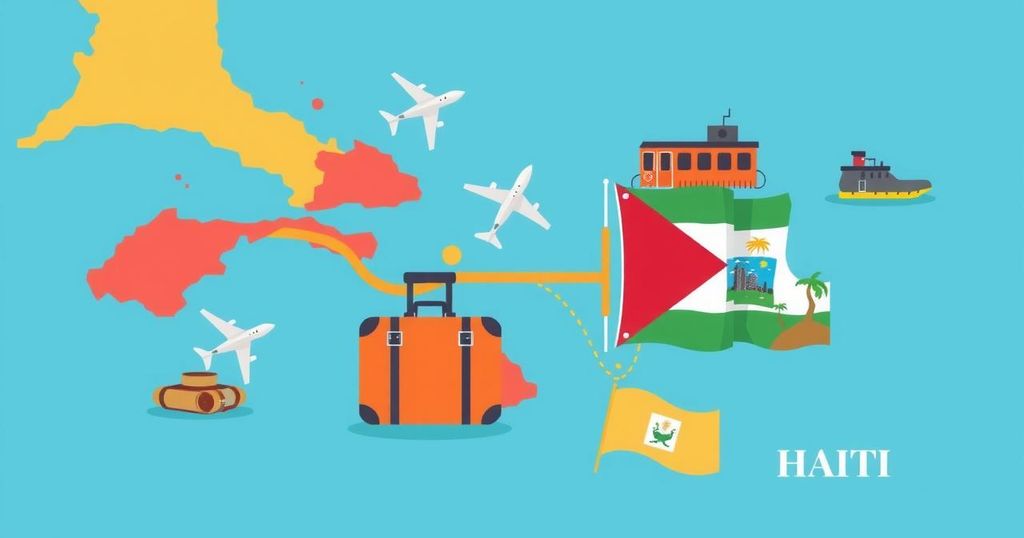The Trump administration is contemplating a travel ban on Cuba and Haiti, potentially categorizing Cuba for total restrictions and Haiti for less severe measures. The move stems from security concerns and the need for sufficient vetting processes. Previous travel ban iterations already included multiple nations. The U.S. Embassy in Haiti faces challenges concerning visa processing amid local instability and violence.
The Trump administration is considering the inclusion of Cuba and Haiti in an upcoming travel ban, as reported by sources familiar with the discussions. Cuba, recognized by the State Department as a state sponsor of terrorism, may be placed on a comprehensive travel ban “red list,” while Haiti could face a less severe categorization. This would extend an existing travel ban, which already targets various nations based on perceived security risks.
Before President Trump took office, he instructed officials to identify countries with inadequate vetting procedures to be subjected to travel restrictions similar to those imposed during his first term targeting Muslim-majority nations. Universities have started alerting their staff and students regarding potential threats, prompting the American-Arab Anti-Discrimination Committee to issue similar warnings that included a list of nations at risk of being targeted.
The first iteration of the travel ban affected several countries, but notably excluded Cuba at that time. However, a recent executive order necessitates a review of countries where entry screening and immigration vetting fall short, potentially resulting in further travel restrictions. The State Department refrained from commenting on ongoing deliberations concerning the travel ban.
Reports indicate that the new restrictions may also include Afghanistan and Pakistan, along with several other countries. The American Association of University Professors advised its members residing in or visiting these countries to return to the United States as soon as possible, emphasizing the possibility of extreme vetting processes.
The criteria for the potential restrictions on Cuban and Haitian nationals remain undefined, but past bans included complete suspensions of visa issuance. In recent years, the U.S. Embassy in Havana ceased issuing non-immigrant visas except in limited instances due to changed political dynamics. The asylum process for Cubans was temporarily halted, although a family reunification program was reinstated under the Biden administration.
In the realm of U.S.-Cuba relations, the Trump administration has reinstated Cuba on the terrorism sponsor list and has tightened sanctions on Cuban military entities. It is believed that the criteria for the proposed travel ban will cite the inability of these countries to conduct appropriate background checks as a primary justification for the restrictions.
Haitian nationals face increased scrutiny under current conditions, exacerbated by rampant gang violence and prior interruptions caused by the COVID-19 pandemic. Consequently, the U.S. Embassy in Port-au-Prince has a notably high visa refusal rate, with limited processing capacity due to these ongoing issues. Despite U.S. funding for security operations in Haiti, the logistical challenges for those seeking visas remain severe, stranding many Haitians in a precarious situation.
The Trump administration’s potential inclusion of Cuba and Haiti in a revised travel ban represents a significant shift in U.S. immigration policy. Although the specific details of the travel ban remain unconfirmed, the implications for nationals from these countries could be profound. With heightened scrutiny of visa applications and ongoing complications from local unrest, the situations for Cuban and Haitian nationals appear increasingly perilous. This restrictive measure is set against the backdrop of broader U.S.-Cuba relations and ongoing security issues in Haiti, complicating humanitarian efforts and diplomatic engagements.
Original Source: www.miamiherald.com






